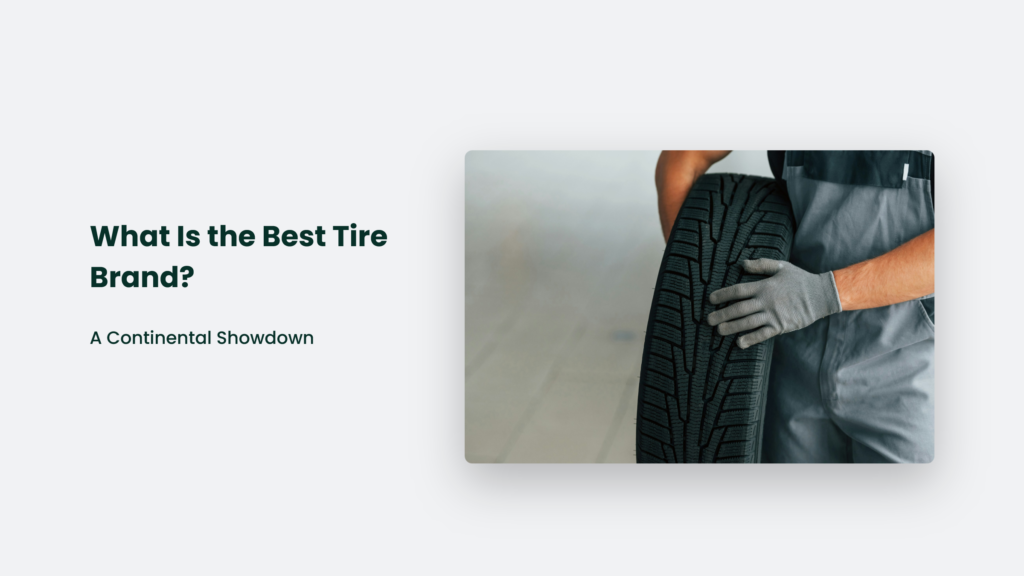When it comes to tires, we often take them for granted. They’re just those round rubber things that keep our cars rolling, right? Wrong. Tires are the unsung heroes of our daily commutes, road trips, and even those white-knuckle drives through unexpected snowstorms. They’re the only part of your vehicle that touches the road, so they play a crucial role in your safety, comfort, and fuel efficiency.
But here’s the million-dollar question: What is the best tire brand? It’s sparked more debates than a political forum on social media. So, let’s dive into this continental showdown and see if we can find an answer that doesn’t leave us spinning our wheels.

The Titans of Tires: A Global Perspective
Before we get into the nitty-gritty, let’s take a bird’s eye view of the tire industry. It’s a massive global market, with players from every corner of the world vying for your hard-earned cash. But a few names consistently rise to the top:
- Michelin
- Bridgestone
- Continental
- Goodyear
- Pirelli
These are the heavyweight brands that have existed longer than most of us. They’ve weathered economic storms, technological revolutions, and countless changes in consumer preferences. But does longevity automatically equate to quality? Let’s find out.
What Is the Best Tire Brand?
Michelin: The Reigning Champion
For seven consecutive years, Michelin has held the title of the world’s most valuable tire brand, with a brand value of USD 7.9 billion in 2024. That’s not just impressive; it’s downright dominating. But what makes Michelin so special?
The Michelin Man’s Secret Sauce
- Innovation: Michelin consistently invests in research and development, pushing the boundaries of tire technology.
- Reputation: Brand Finance research shows that the brand excels in familiarity and recommendation scores.
- Premium positioning: In its home market, Michelin commands the highest price acceptance among consumers.
But being the most valuable doesn’t necessarily mean being the best for every driver. It’s like saying caviar is the best food – sure, it’s expensive and highly regarded, but it might not be what you want on your pizza.
Bridgestone: The Close Contender
Hot on Michelin’s heels is Bridgestone, with a brand value of USD 7.6 billion. That’s a mere USD 254 million behind Michelin – practically pocket change in the tire world. Bridgestone has been making significant strides, with an 8% increase in brand value over the past year.
Bridgestone’s Balancing Act
- Adaptability: The company has shown resilience in the face of rising raw material prices and high inflation.
- Growth: Despite challenges, Bridgestone achieved a 5% increase in year-on-year revenue.
Bridgestone’s performance is a testament to the fact that the tire industry is anything but static. It’s a constant race to innovate, adapt, and overcome challenges.
Continental: The Dark Horse
Continental comes in third place, with a brand value of USD 4.7 billion. While it might seem like a distant third, Continental has been making impressive gains, with a 13% increase in brand value.
Continental’s Climb
- Improved perception: The brand has seen better familiarity, consideration, and reputation scores.
- Strength increase: Continental’s Brand Strength Index score rose by 3.2 points to 79.1 out of 100.
What’s particularly interesting about Continental is its focus on electric vehicle (EV) tires. Continental’s expertise in this area could be a game-changer as the automotive industry shifts towards electrification.
The Best Tire Brand: A Subjective Showdown
Now, here’s where things get tricky. Declaring a single “best” tire brand is like trying to choose the best flavor of ice cream – it’s subjective and depends on a variety of factors:
- Your vehicle type
- Your driving habits
- Your local climate
- Your budget
- Your priorities (e.g., performance, longevity, comfort)
That said, we can make some general observations:
- For overall quality and innovation, Michelin often leads the pack.
- Bridgestone and Continental are strong contenders for a balance of quality and value.
- For specific needs (e.g., performance tires): Brands like Pirelli often excel.
The Rise of Chinese Brands: A New Challenger Appears
While the traditional giants duke it out at the top, an interesting trend is emerging from the East. Chinese tire brands are showing remarkable growth, with Giti leading the charge as the fastest-growing tire brand globally in 2024, boasting a 19% increase in brand value.
Other Chinese brands like Sailun, Linglong Tire, and Sentury Tire are also making waves, particularly in markets like South America, where exports increased by 33%. This surge in Chinese tire brands presents a new dynamic in the global market, offering consumers more options and potentially disrupting the established order.
Making the Right Choice: Tips for Tire Shopping
So, how do you choose the right tire for your needs? Here are some tips:
- Know your size: Check your vehicle’s manual or the sidewall of your current tires.
- Consider your driving conditions: All-season, summer, or winter tires?
- Read reviews: Look for professional tests and user reviews.
- Compare prices: But remember, the cheapest option isn’t always the best value.
- Check the warranty: A good warranty can provide peace of mind.
The Future of Tires: What’s on the Horizon?
The tire industry isn’t resting on its laurels. Here are some trends to watch:
- Sustainable materials: Brands are exploring eco-friendly alternatives to traditional rubber.
- Smart tires: Embedded sensors could provide real-time data on tire condition and performance.
- Airless tires: Companies like Michelin are developing puncture-proof, airless tire designs.
Conclusion: The Best Tire Brand Is…
The one that best meets your specific needs. While Michelin, Bridgestone, and Continental lead the pack regarding brand value and global recognition, the best tire for you might come from a different brand altogether. The key is to research, understand your needs, and make an informed decision. Remember, the best tire brand isn’t just about prestige or price – it’s about finding the right balance of safety, performance, and value for your unique situation.
So, choose wisely whether you’re cruising down the Autobahn or navigating city streets. Your tires are the only thing between you and the road.
Frequently Asked Questions:
Are expensive tires always better?
Not necessarily. While premium brands often offer high-quality products, mid-range tires can provide excellent performance at a more affordable price point. The key is to find the right balance of quality and value for your specific needs.
How often should I replace my tires?
Most tire manufacturers recommend replacing tires every 6 years, regardless of tread depth. However, if you drive frequently, you may need to replace them sooner. Always check your tire tread depth regularly.
Are all-season tires good for winter driving?
All-season tires are designed to provide adequate performance in a variety of conditions, but they may not be sufficient for severe winter weather. If you live in an area with heavy snowfall or frequent ice, dedicated winter tires are recommended.




